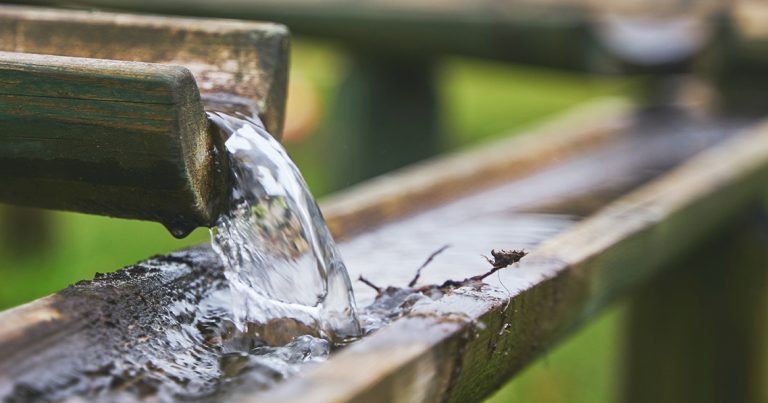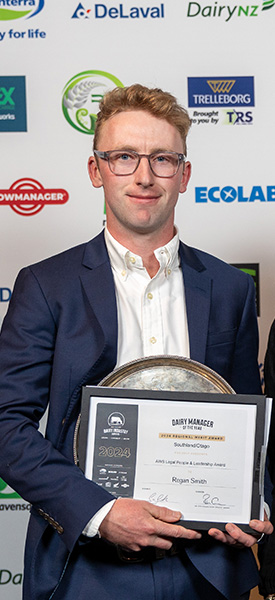Upcoming changes to rural drinking water supply and how this will affect you

There is significant change affecting the rural sector in relation to potable/domestic water supplies.
The Water Services Act 2021 requires all drinking water suppliers other than domestic self suppliers to register with the new national water administration entity Taumata Arowai and provide a source water risk management plan. Any supply that services more than one dwelling is now a water supply captured by the new legislation. It is anticipated that this may capture up to 75,000 rural domestic water suppliers across the country.
Acceptable solutions are being formulated by Taumata Arowai that may provide an alternative approach for smaller water supplies to reduce the requirement to undertake comprehensive risk management planning including the Source Water Risk Management Plan
As part of this water reform submissions are being sought on the proposed amendments to the National Environmental Standard for Sources of Human Drinking Water (NES-DW), as a significant number of water sources for drinking water are going to be captured under the Water Services Act these new drinking water regulations will apply.
The proposed changes include immediate protection to source drinking water at the abstraction point by defining a source water risk management area (SWRMA) into different zones including the immediate area around the source and a larger area where activities need to be managed and, in some instances, the entire catchment area. Different rules will apply to each zone and what activities that can be undertaken in that zone including application of fertiliser, cultivation, grazing and it is likely that effluent discharges will also be captured.
It is important to be part of the conversation and submit (before the submission closing date of Sunday, 6 March 2022);
- Whether the SWRMA zones are necessary and
- What activities those zones should address and how restrictive they should be.
- Should there be fully prohibited or permitted activities for each proposed zone.
- Whether the proposed changes affect your ability to supply drinking water and would they influence your decision to continue to provide drinking water.
- Should small water supplies should be exempted from the regulations.
The full consultation document for the NES Freshwater can be found online at https://consult.environment.govt.nz/freshwater/nes-drinking-water/
Guidelines for writing an effective submission
Policy makers are required to undertake consultation with communities on proposed law changes. The purpose of consultation is to “roadtest” a proposal and assess whether the policy will work, or whether it will cause an injustice or unfairness for the community the proposed policy is intended to apply to.
Making an effective submission is easy if you stick to 3 rules:
Rule 1 – Provide the facts
Tell the agency who is making the submission. Are you making a submission as an individual or as a group for organisations such as a company. You should explain the purpose or aims of a group.
A submission which tells a policymaker what part of the community you belong to and why your submission is relevant is also a good starting point.
If you don’t wish to make a submission on some parts of a particular proposal then state that you are not commenting on those specific parts.
Example:
<name> Limited is a family farm company which is on the boundary of rivers/lakes/streams/wetlands which are part of a catchment which is a source of water for drinking.
Rule 2: Be clear – Explain the impact
Give a general overview about your opinion on the matter you are submitting on.
Decision-makers need to understand what effect the proposal will have on you or your group or company.
You need to explain what your particular concerns are if that proposal comes into effect. Set out the information that you are relying on for your point of view, including where you found any facts or figures used in your submission.
If you are in support of a particular policy give reasons for your support.
If you are or are not in favour of a particular policy explain why the terms of that policy will cause an unfairness or injustice in your circumstances.
Example:
We agree that the protection of drinking water sources from contamination is essential. However we do not agree that proposal three will achieve that outcome.
Proposal 1 which defines at risk source water areas is not supported for the following reasons:
- The proposal does not explain who will meet the costs of delineating source water areas and our experience to date is that regional councils do not have sufficient scientific information to identify source water areas. We think that further scientific information and investigation will be required and this will take a significant amount of time before the areas are adequately defined.
- As a landowner we do not wish to meet that cost as there is a general public benefit to this information being collected by the Regional Council.
- We also think that the duty and therefore the costs of avoiding contaminants entering a drinking water source will fall on the farm that is closest to the water sources and that this policy should be designed so that those costs are fairly shared amongst the catchment.”
Rule 3: Request an action
Tell the agency what decision you think should be made. Submitters who wish to support a policy can state that they would like the decision to be made that the policy is to be adopted in its current form.
Submitters who oppose a policy can state what specific changes they would like to see made to the policy. That could be a request that the policy is not adopted (either as a whole or in part) or perhaps that the policy is reworded.
Example:
“We recommend that the policy proposal three is not adopted as the existing regulatory framework is sufficient for the purpose of protecting waterways that are a source of drinking water. That is because for the reasons outlined above a farm Management plan will ensure that the entry of contaminants is adequately minimised.”
The team at AWS Legal are here to help. We can provide guidance on how to make an effective submission, or send you a submission template free of charge outlining the issues we have identified. For more information contact us on 0800 100 151.
Articles and Updates








